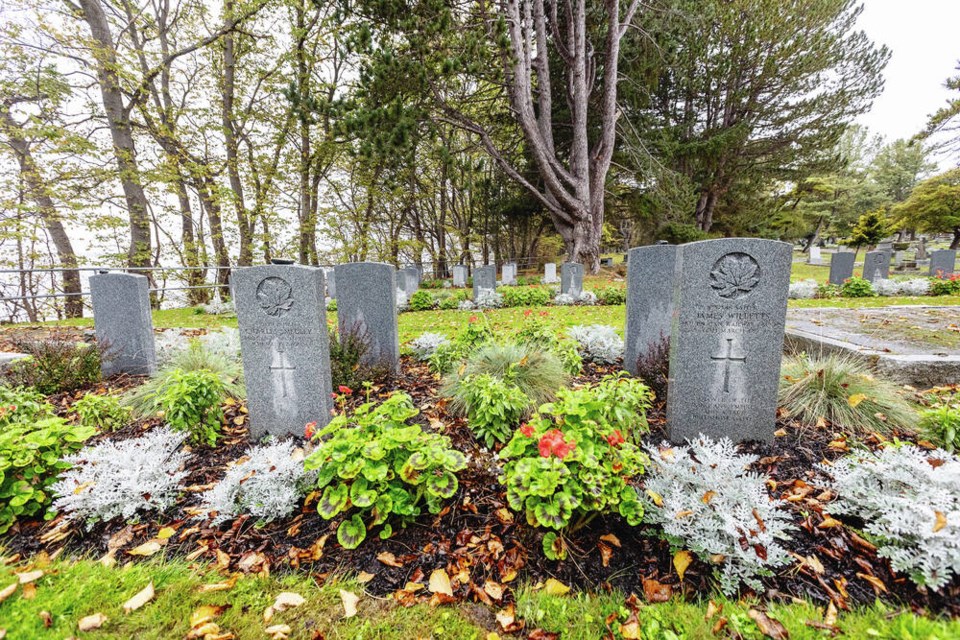Some of the servicemen laid to rest in Ross Bay Cemetery were in unmarked graves. Now, after research by retired combat engineer Kyle Scott and local historians, many of those who served their country are being remembered with official military grave markers.
Maj. Francis Verschoyle Young, VD
Young was just “Barney” to his family. He served in the British army for 20 years leading up to the Boer war and First World War, serving in India and Afghanistan. At age 54, he found himself in uniform again with the 54th Kootenay Battalion in the Canadian Expeditionary Force during the First World War. He survived his last war and returned to Victoria, where he died in 1930. His grave was unmarked until 2021. Scott received a message from his descendant who was thrilled to see a marker on the grave when researching her family history.
Petty Officer James Dupen, RCNVR
Considered one of the oldest sailors in the First World War, Petty Officer James Dupen of the Royal Canadian Naval Volunteer Reserve was born in 1850 and died in 1938. He had previously served in the Royal Navy for 22 years when he re-enlisted in the First World War at age 68. He was buried in the family plot with no marker. In 2022, Dupen’s stone was finally placed.
Pte. Macario Fat
Pte. Macario Fat of the 47th Canadian Infantry was a Filipino immigrant who volunteered to fight for Canada and was wounded in 1917 at Passchendaele in Belgium, where Canadians overcame rains, deep mud and heavy enemy fire over nearly three months to take the town. Fat would return to Victoria and live out his days here.
Father and son James McNab Jones and Thomas Jones
Gunner James McNab Jones served in the First Fenian Raid of 1866 and later as a boatman in the Egypt campaign in the 1880s during Canada’s first overseas mission. Two of his sons would go on to serve, and one, Roland, was killed overseas. Thomas survived after serving in the Canadian Army Service Corps. He would pass away in 1962 and is buried beside his father.
Paris Carter, Victoria Pioneer Rifle Corps
Paris Carter, born in Kentucky in 1820, made his way to California in the late 1850s and when word had spread that Gov. James Douglas was welcoming African Americans to Vancouver Island, he and many others made their way to Victoria.
He began raising his family in Victoria and living a life as a free man as the U.S. Civil war was unfolding. In 1859, as the brief “Pig War” dispute on the San Juan Islands was happening, Douglas authorized the creation of the first all-black unit in Canadian history with the creation of the Victoria Pioneer Rifle Corps.
The unit survived from 1860-1865, but faced racism and other challenges. They often raised their own funds, and trained with antique equipment. The unit folded in 1865.
The men scattered, but Carter created a life in Victoria and raised three children. On one occasion their family home was lit on fire while they slept.
Carter died in Victoria in 1890, only a short time after his wife, Mary. They lay in unmarked graves until 2020 when Scott discovered his story and final resting place.
Since then, Scott found a second man, Richard Stokes, who was part of the Victoria Pioneer Rifle Corps, and his grave will be marked in Ross Bay later this month.



